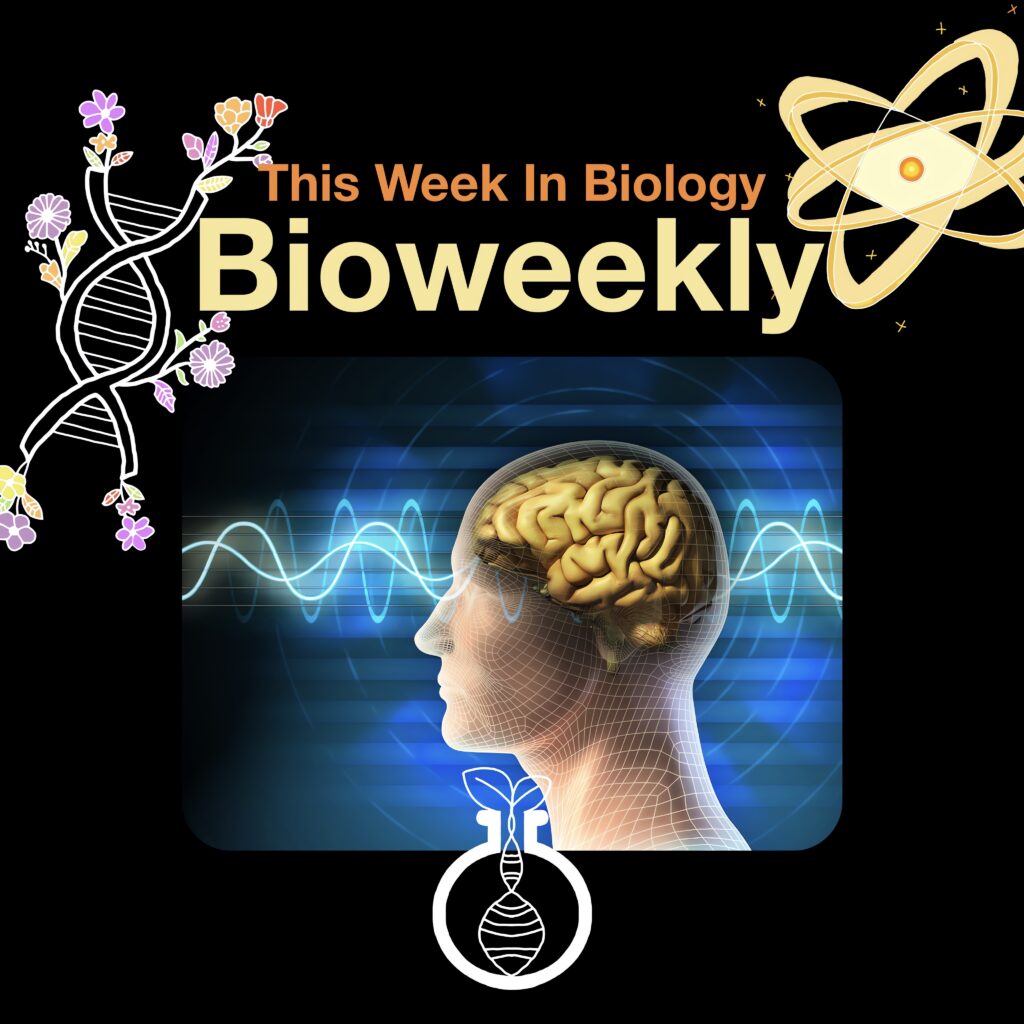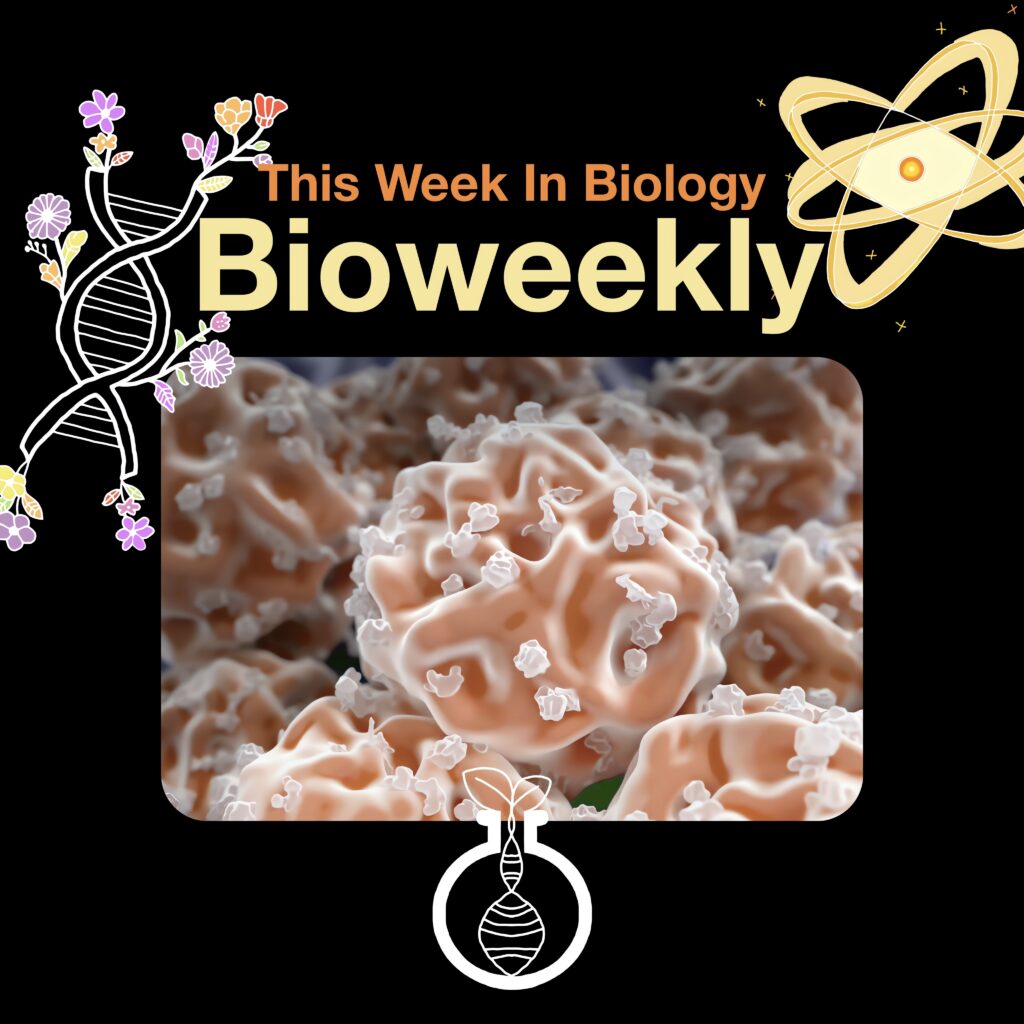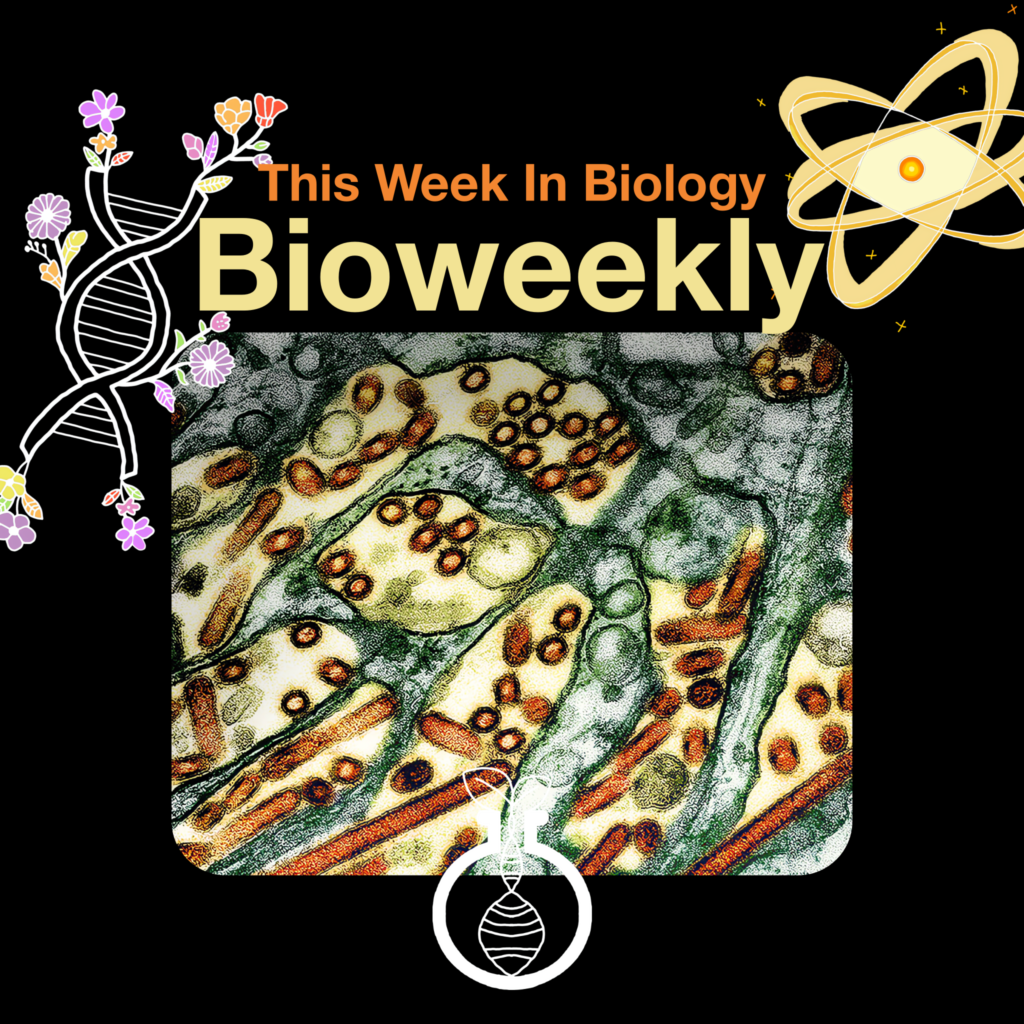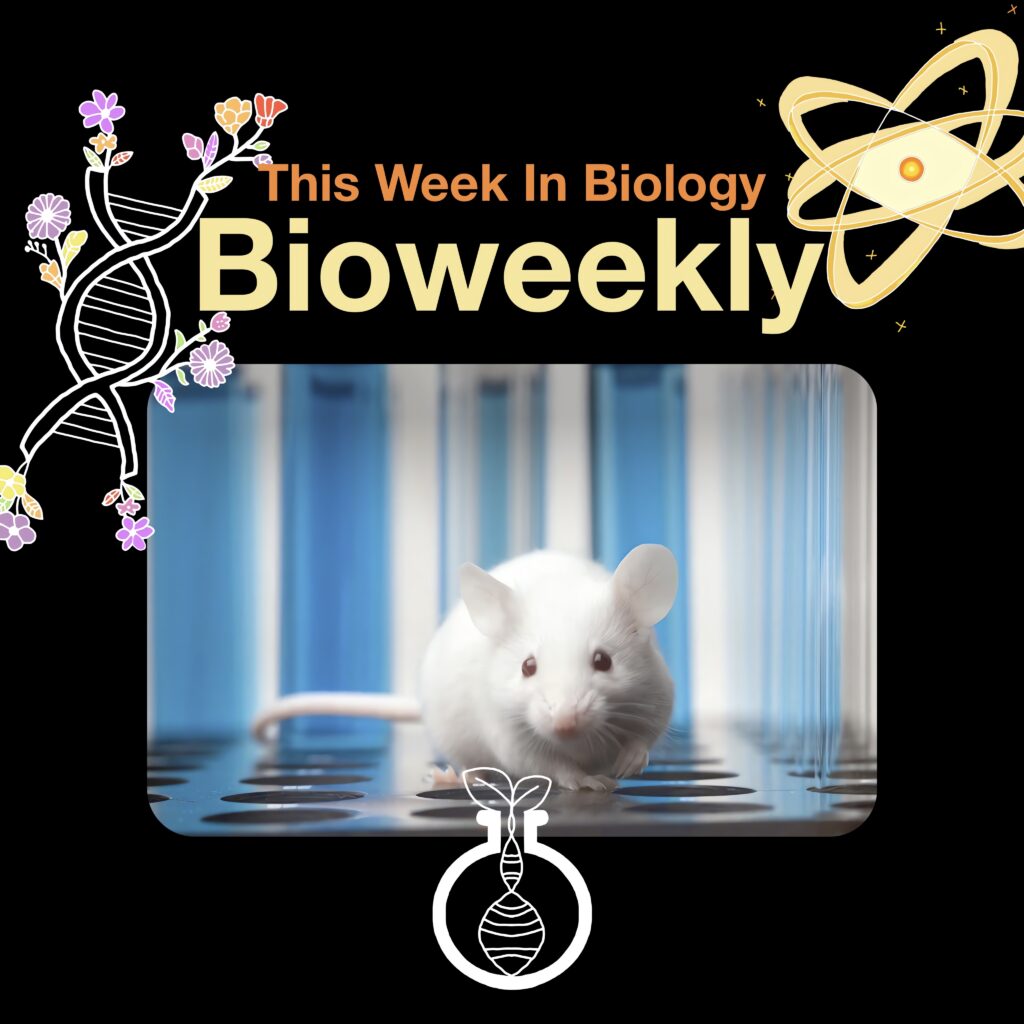We’re thrilled to have you here! Each week, we dive into the latest and most groundbreaking stories in biology, exploring the research that shapes our understanding of health, technology, and the natural world. This week’s highlights include the intriguing link between poor sleep and brain aging, an exciting leap in data storage as DNA goes binary, and a promising advancement in cancer treatment with engineered molecules targeting mutated proteins. Get ready to explore these fascinating developments—let’s embark on another journey through the wonders of biology. Happy reading! 🌱🔬
You can find all of the sources in this article right below each headline
Engineering Creates Molecules That Target Cancer-Causing Proteins
Researchers have developed a new drug that targets cancer-causing HER2 proteins while sparing healthy cells with normal HER2. Unlike current treatments, this engineered antibody recognizes a specific mutation on HER2 proteins that leads to uncontrolled cell growth. By converting the antibody into a bispecific T-cell engager, scientists ensured that one end binds to the mutant HER2 on cancer cells, while the other triggers immune cells to attack. Early tests in mice have shown promising results, as the treatment reduced tumor growth without significant side effects. This innovation may pave the way for precise cancer therapies targeting mutant proteins with fewer risks to healthy cells.
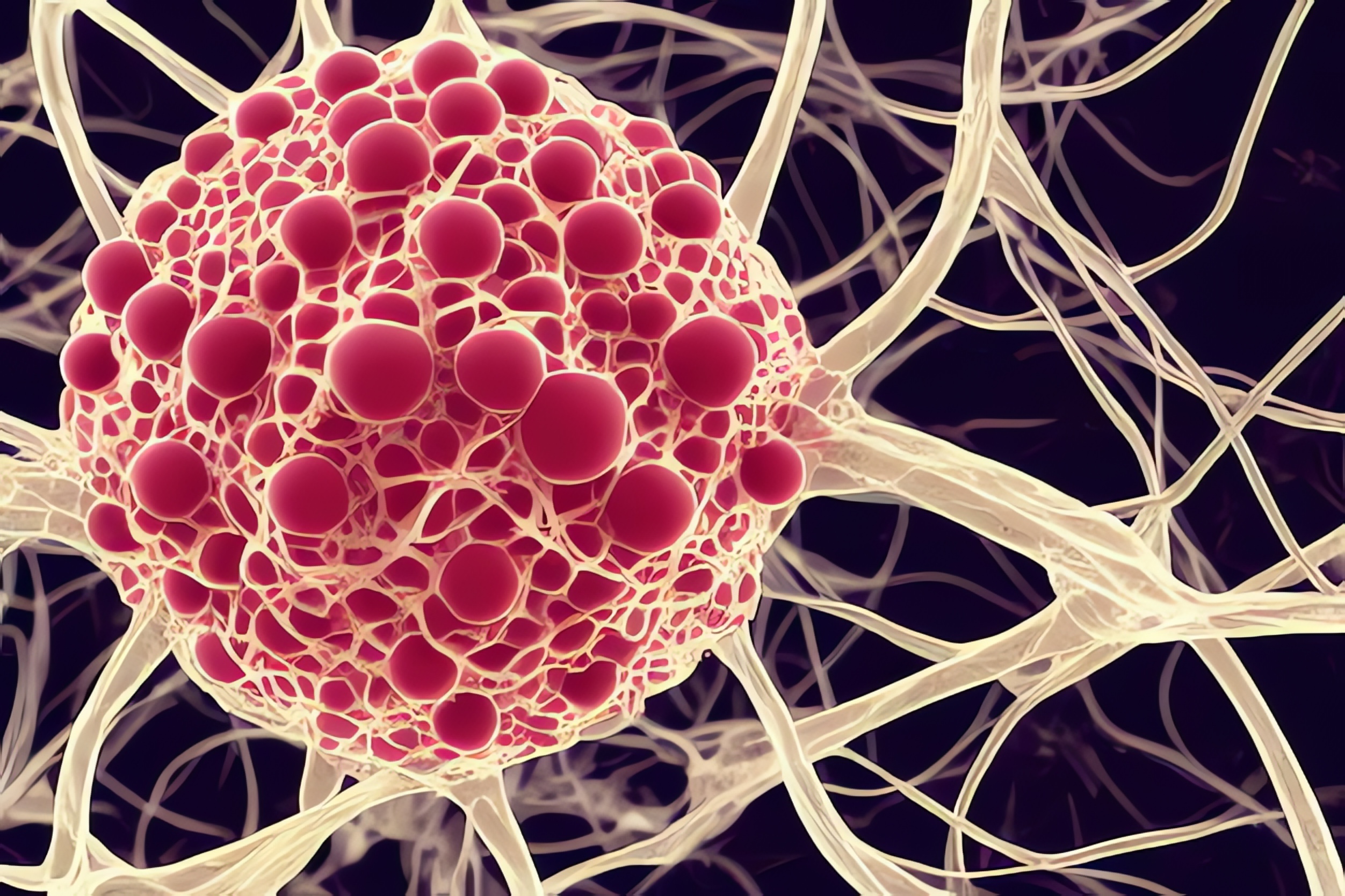

You can find the full article from here
Could Poor Sleep in Middle Age Speed Up Brain Aging?
A recent study suggests a possible link between poor sleep quality in early middle age and signs of accelerated brain aging in later years. Published in Neurology, the research examined sleep patterns in 589 participants who were, on average, 40 years old at the study’s start. Brain scans, conducted 15 years later, revealed that individuals with multiple sleep issues—such as trouble falling asleep or staying asleep—showed signs of increased brain aging. Those with consistent poor sleep quality had brains appearing up to 2.6 years older than those with better sleep. While this research highlights an association rather than direct causation, the findings underscore the importance of managing sleep quality earlier in life to potentially slow brain aging.
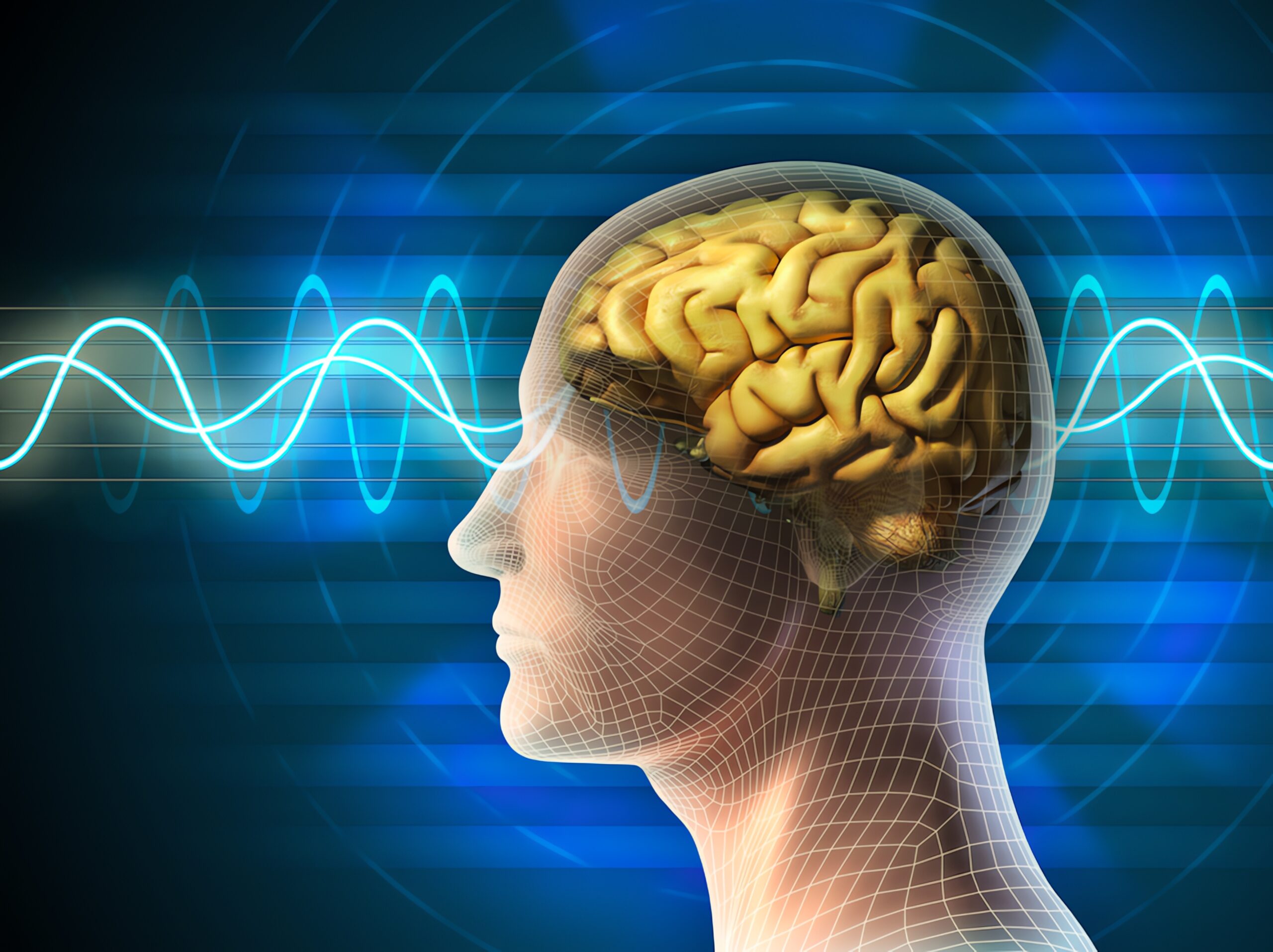

You can find the full article from here
DNA Stores Data in Bits After Epigenetic Upgrade
Scientists have developed a groundbreaking method for using DNA as a binary data storage system, allowing it to store information in strings of 0s and 1s, just like computers. This approach leverages DNA’s dense information capacity while adding methyl groups to represent bits. Unlike previous methods that embed data in the DNA sequence, this new method enables prefabricated DNA bricks to store data cheaply and quickly. The technique’s potential was demonstrated by encoding images, including a panda, in nearly 270,000 bits. While still costly, this development may one day offer a sustainable alternative to electronic storage, which struggles to meet rising data demands.
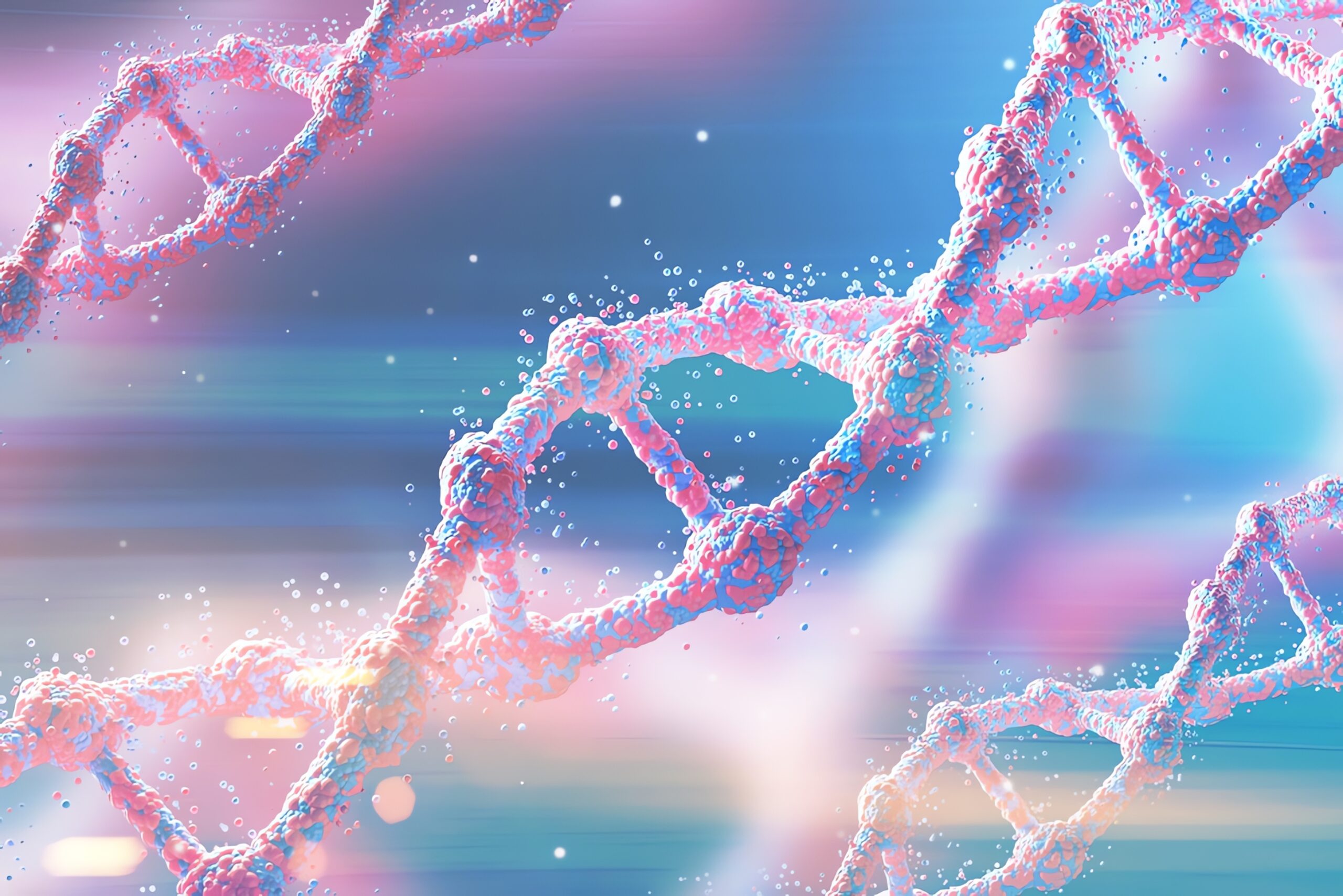

You can find the full article from here
Thank you for diving into this week’s news with us. We hope you enjoyed uncovering these fascinating updates as much as we did. Be sure to return next week for more exciting discoveries from the world of science. Until then, stay curious and keep exploring!


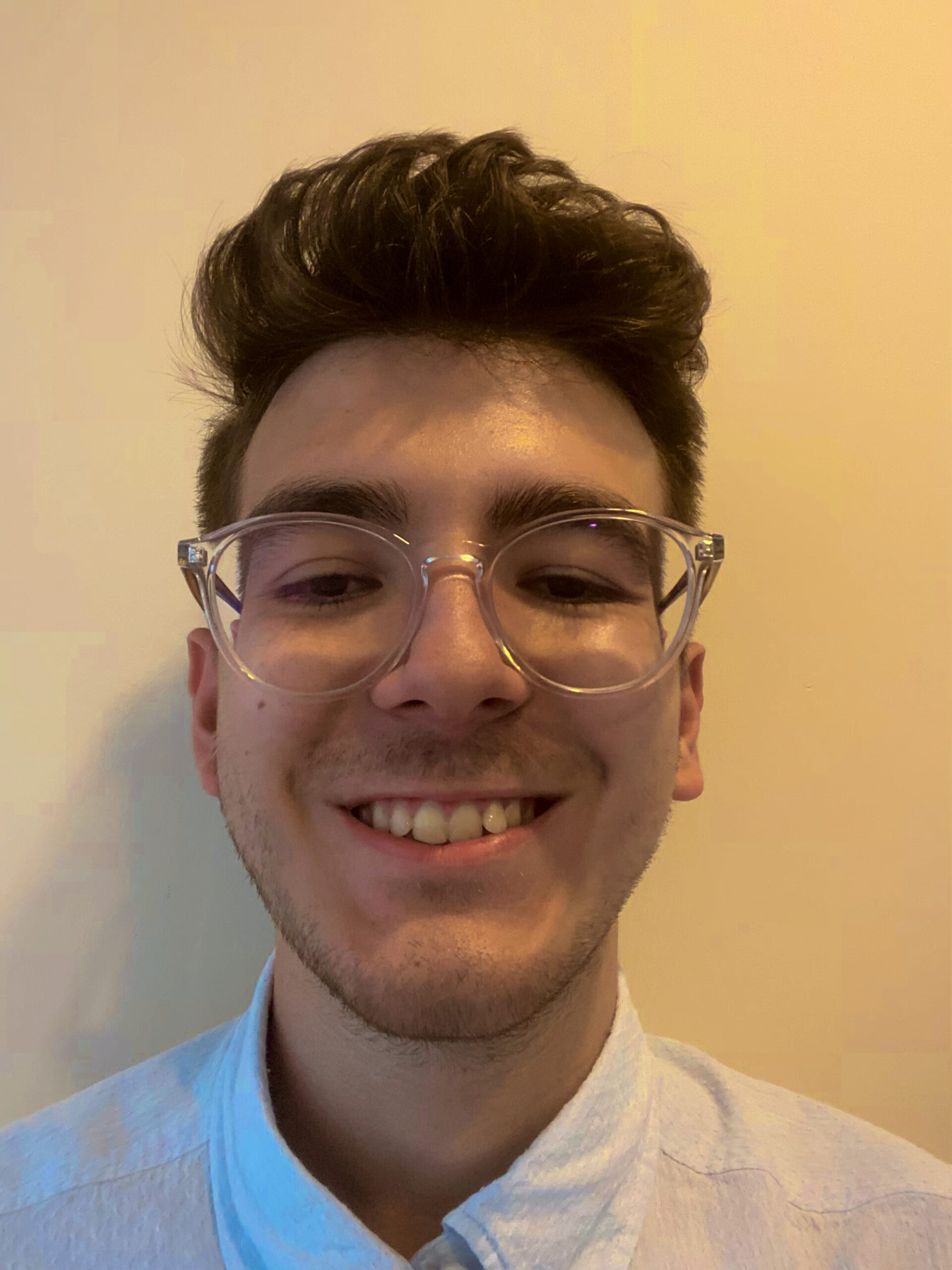

My name is Ali Emre Cabadak, a dedicated biology enthusiast currently pursuing my studies at Marmara University, where I am majoring in Bioengineering. As a passionate advocate for scientific discovery and innovation, I am the founder of Biologyto. My goal is to bring the wonders of biology closer to everyone and inspire a new generation of thinkers and innovators. Through Biologyto, I aim to write scientific articles that delve into the fascinating world of biology, sharing insights and discoveries that inspire curiosity and innovation.

